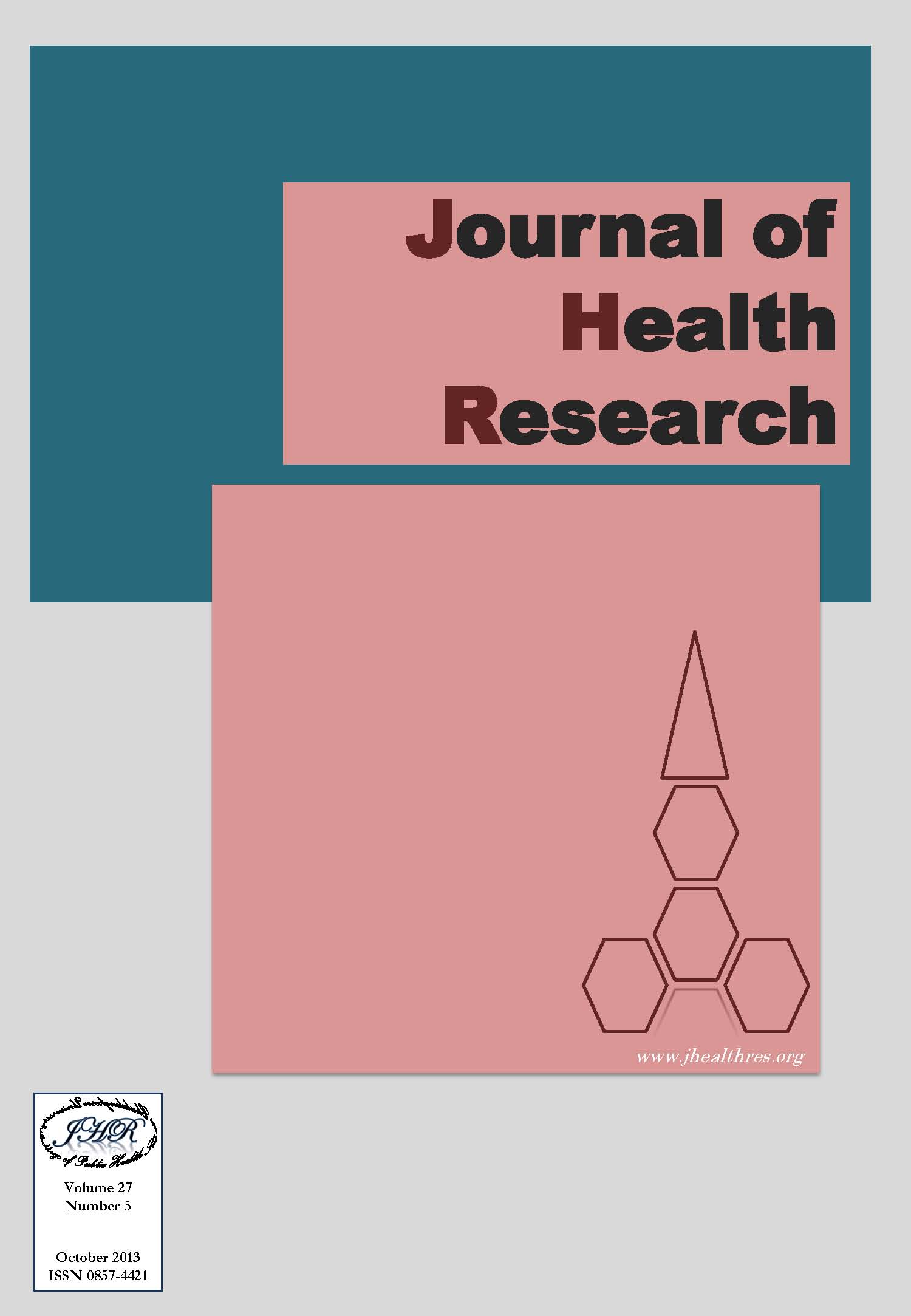Factor Related to Coping Strategies of Nurses Working in Health Care Centers on Timor Island, East Nusa Tenggara Province, Indonesia
Keywords:
Coping strategy, Job stress, Hardy personality, Social support, IndonesiaAbstract
The study was conducted to identify and study significant factors related to nurses’ coping strategies working in health care centres in five districts on Timor Island, East Nusa Tenggara Province, Indonesia. This was a descriptive cross-sectional study. A self-administered questionnaire was given to 322 nurses in the selected area. The response rate was 80.5% (322 from 400 cases). Timor Island has been purposively chosen for this study, and random sampling nurses from ninety-five health care center. Data were analyzed by using descriptive statistics, the chi square test and multiple logistic regression. Coping strategies were divided into problem-focused coping strategy (PF) and emotion-focused coping strategy (EF). Almost half of the respondents often used PF and EF. The quality of hardy personality was divided into commitment, challenge and control. Approximately 80% of the respondents used a combination of these three subcomponents. Nearly half of the respondents had low levels of stress. With regard to social support, 98.1% had friends, 89.7% lived with their families, 78% always received support from family and friends and 64.6% occasionally shared their problems with others., . When adjusted for other variables, working as a nurse for more than 5 years (AOR = 0.40,95% of CI 0.20 to 0.78) and having a high level of workload stress (AOR = 1.84,95% of CI 1.15 to 2.95) were significant predictors for often using EF. Gender (female) (AOR = 1.85,95% of CI 1.06 to 3.24), occasionally sharing problems with others (AOR = 1.87,95% of CI 1.13 to 3.10) and occasionally receiving support from family and friends (AOR = 1.94, 95% of CI 1.09 to 3.47) were significant predictors for often using PF. In conclusion, resarchers found that most nurses appear to use a combination of both emotion- and problem-focused strategies instead of one or the other exclusively, depending on the type of stressor and the situations. Being female and having sharing problem with other support from others were significant factors related to the use of PF often, while nnurses number of years working and workload were significant factors related to EF often.







